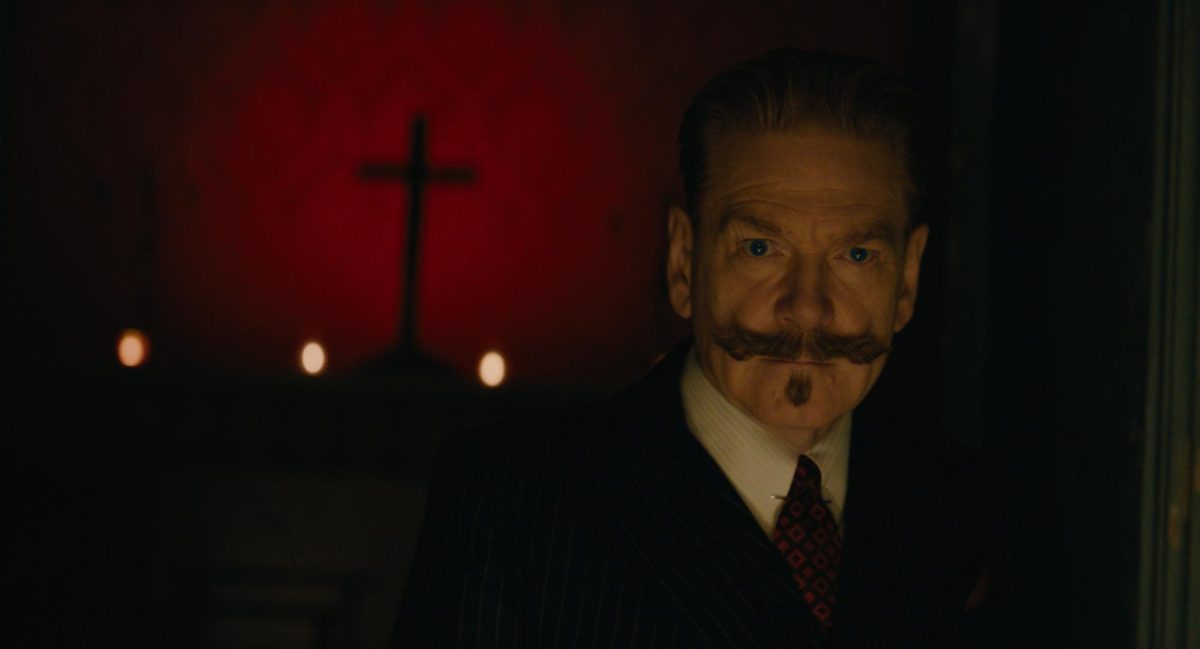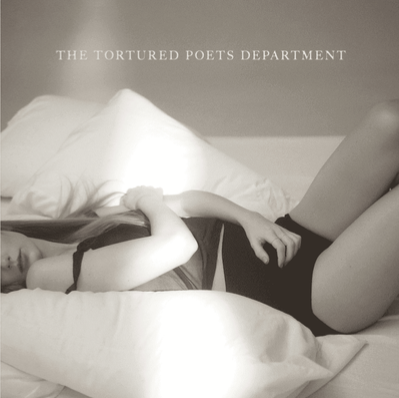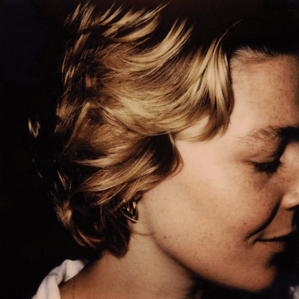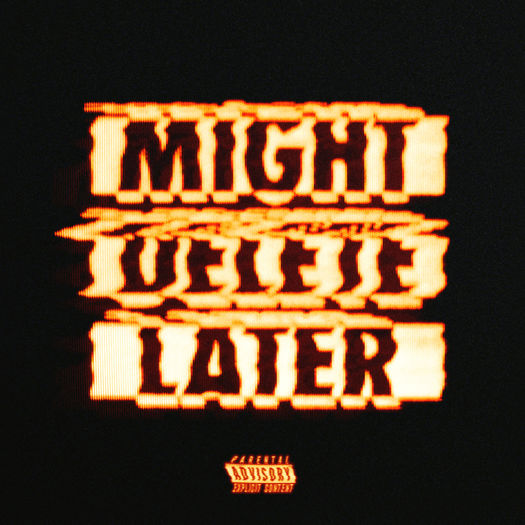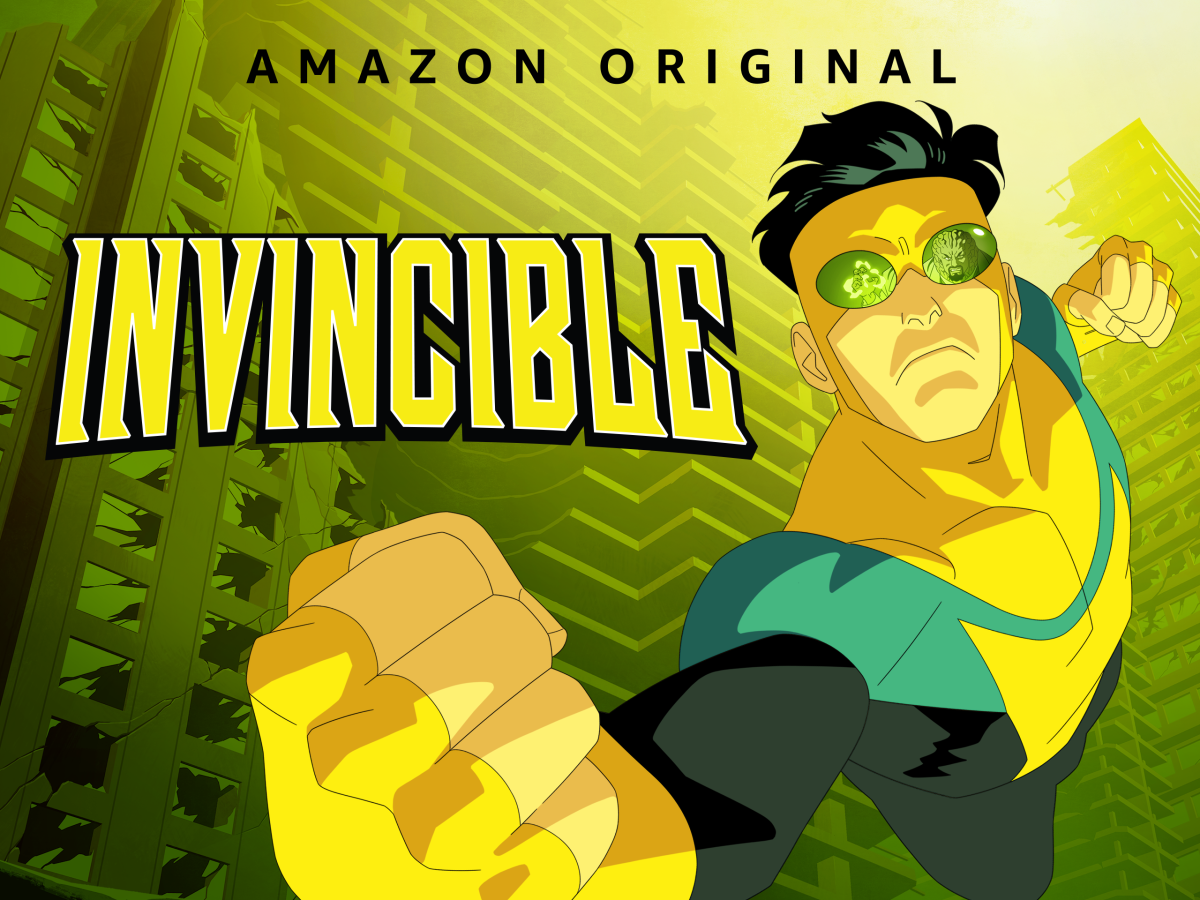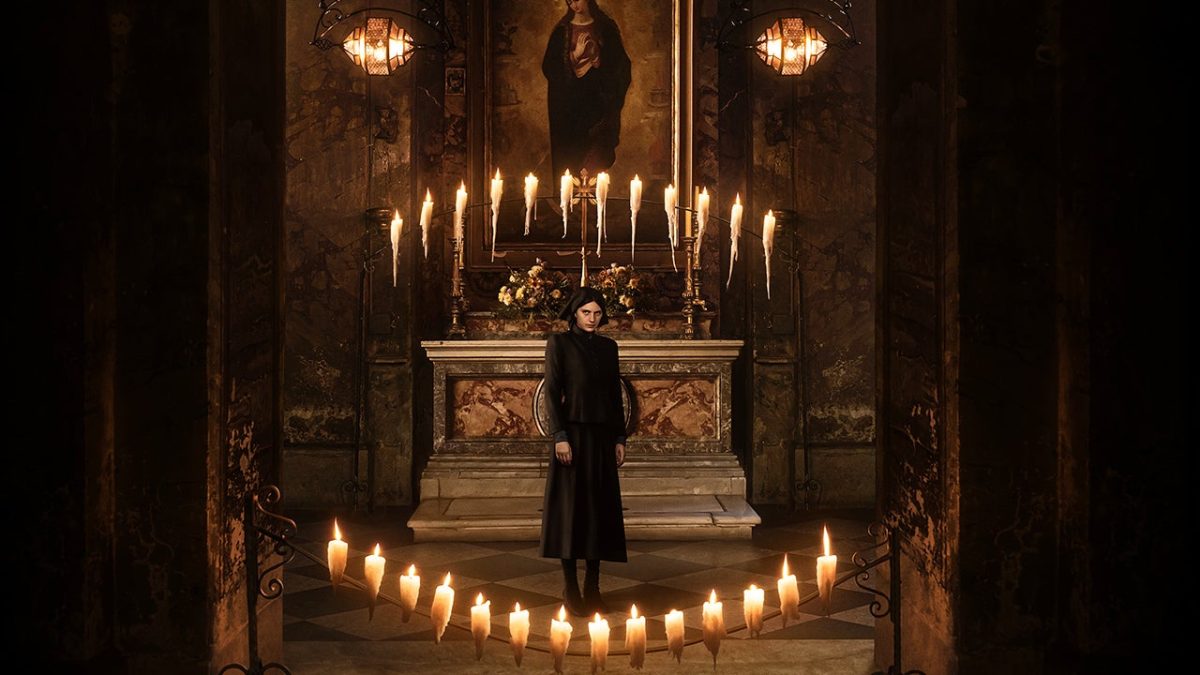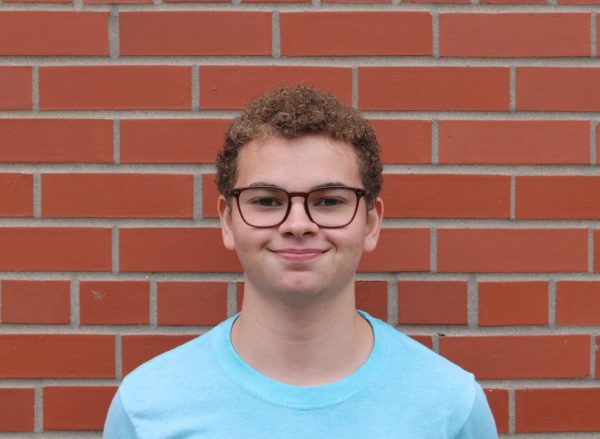Agatha Christie’s famous Belgian detective, Hercule Poirot, returns to the big screen in spooky fashion with Kenneth Branagh’s third whodunit “A Haunting in Venice,” which released Sept. 15. In the modern day, the mystery genre has largely stagnated (minus Rian Johnson’s “Knives Out” films), so it’s nice to see a somewhat refreshing take on one of Agatha Christie’s lesser-known Poirot novels: “Hallowe’en Party.” Having not read the book, I legitimately didn’t know what to expect from this film going in.
The film finds a retired Poirot (Kenneth Branagh) in Venice, living out his days without solving mysteries, when an old friend (Tina Fey) invites him to a séance to help prove a medium’s illegitimacy (Michelle Yeoh). Intrigued, the former detective follows his friend to a Halloween party at a mansion supposedly haunted by the children that died on its premises. When Poirot sees supernatural events unfold and starts to doubt his reality, a murder occurs at the séance; the detective realizes he must uncover a ghost’s murder from a year prior to solve the present mystery.
I’m sad to say that “A Haunting in Venice” was a massive disappointment. I absolutely love everything related to Hercule Poirot (and mysteries in general), but Kenneth Branagh’s last two films (“Murder on the Orient Express” and “Death on the Nile”) were, unfortunately, exceedingly mediocre, despite the quality of the source material. “A Haunting in Venice” succeeds in many places where the previous installments failed, but is still mediocre overall.
It’s clear a lot more effort was put into this movie, because it has a much higher production value. The film is incredibly striking, both visually and thematically. Many of the shots, although almost completely within the confines of the mansion, are shockingly beautiful. It’s also extremely unique to watch Hercule Poirot question his own beliefs throughout the film. The acting is superb, and sidesteps the usual corniness of murder mystery characters. The story is genuinely engaging, with amazingly-written plot twists — all the mystery goodness you might come to expect from a Poirot story. This is where the positives largely end, because in almost every other department it feels like Poirot took a step back.
With a murder mystery, of course the subject matter is dark. One would expect there to be some sort of suspense and fear from both the mystery itself and the murder, because these aspects both serve the story and are already the most engaging parts. However, “A Haunting in Venice” strangely shifts the focus away from building suspense toward the actual mystery and is more concerned with Poirot getting jumpscared by ghosts. This movie lost me in its over-the-top, out-of-place horror aspects that — after having watched the film — I’m confident don’t have any place in a Poirot murder mystery. From the trailer, I was aware that Branagh would fixate more on fear than other whodunits have, but I think the trailer is an understatement to how far he leans into tryhard horror.
Almost every single scene contains at least one jumpscare, yet I can count on one hand how many times it legitimately added to the movie. I wouldn’t necessarily have a problem if there were just a few scares here and there that make the movie creepier, but these jumpscares are just so frequent that at a certain point they’re way too predictable and generally make the experience less enjoyable. This is a big issue in a murder mystery, of all things, where the audience is meant to pay close attention to each detail and hang onto every line of dialogue. But when, by paying attention to clues, the audience is slapped in the face with a loud bang, it quickly becomes easy to check out and miss pieces of the mystery. I did not appreciate this aspect of the movie, because being a whodunit fanatic I love to piece together the mystery as I watch, so I don’t like that Branagh incentivizes not paying attention due to the obnoxious “scares” that add no substance to the movie-watching experience and only detract from an otherwise unmarred script.
There is almost no score in this film — every scene is nearly silent to seemingly accentuate characters’ breathing patterns, until a shrill sound marks another jumpscare. When there is music, it doesn’t really stand out as it’s usually a quiet background element. This is all meant to add to the eeriness, but it just makes the film lack character and quite boring at points. The editing of this movie, however, is probably its biggest fumble. Working with so much raw talent mixed with beautiful cinematography, it baffles me how badly the editing was messed up. Had the stellar performances been truly appreciated, frequent jumpscares and horrendous sound mixing would not have been necessary to get that spooky atmosphere Branagh, and I’m sure Christie, originally intended.
The actual mystery is great. Beyond the hyperfixation on poorly-executed horror, Agatha Christie’s original story is captivating and hits all the notes one would hope for a whodunit. Where “A Haunting in Venice” fails is that all of the mystery elements are pretty much left on the backburner until the very end, to the point that the iconic detective monologue feels way too short and is not nearly rewarding enough to warrant the tiresome 90 minutes that led up to that point. I genuinely wish that all the increased effort thrust into this film went toward making it a thrilling murder mystery, rather than a thriller featuring murder and mystery.
“A Haunting in Venice” is a testament to the importance of editing and sound design. All the puzzle pieces of a good film are in there somewhere — I would be interested in a revised cut with fewer jumpscares and more of a mystery and character focus, because everything beneath the uninspired editing is nothing short of superb. It truly is a shame that an otherwise brilliant script has been seriously tainted by the film’s cheap scares.
“A Haunting in Venice”: ★★★☆☆



